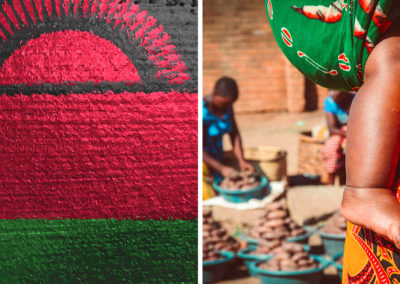Lawmakers in Malawi have rejected a proposal to permit abortion up to birth.
On 11th March, Mathews Ngwale, head of the Parliamentary Health Committee in Malawi, advanced a bill which would expand abortion access considerably.
In late February, the Guardian reported that “Pro-choice campaigners believe almost half of the 193 MPs in the national assembly back the bill”.
When the proposals were brought before the National Assembly on 11th March, opposition was so strong to the Bill, that MPs voted down a motion to even discuss proposals to change abortion laws in the region.
The bill was drawn up nearly five years ago and has received strong and sustained opposition since then, both from within the parliament and wider society, including the large Christian population.
De facto abortion on demand, up to birth
The Termination of Pregnancy Bill outlines that abortion would be available without a time limit on grounds that “the termination of pregnancy is necessary to prevent injury to the physical or mental health of a pregnant woman”.
While this language appears to provide abortion on only narrow grounds, in practice it will likely allow for de facto abortion on demand to be available up to birth in Malawi through a broad interpretation of the term “health”.
Malawi’s Christian Medical and Dental Fellowship expressed ‘grave concern’ after a similarly worded bill was introduced in 2016, stating it “has led other countries to effectively practice abortion on demand”.
The group noted that 98% of the UK’s abortions take place under equally permissive language.
However, unlike the UK’s 24-week limit, Malawi’s Termination of Pregnancy Bill has no time limit attached to the clause, which allows abortion on mental health grounds and would likely allow de facto abortion on demand, up-to-birth.
The proposals will also allow children to procure an abortion without parental consent and could result in doctors who don’t want to be involved in the abortion procedure, nor provide a referral, receiving five-year prison sentences.
Funding for abortion – not for healthcare
Abortion activists with ‘She Decides Malawi’ were outside Parliament on 11th March urging lawmakers to pass the pro-abortion bill. Chimwemwe Mlombwa, an abortion activist with the group, claimed the bill would be life-saving because women are dying “every single day” in unsafe abortions.
However pro-life advocates argue that pro-abortion groups are spending money on promoting abortion rather than attending to basic medical needs, including maternity care.
Obianuju Ekeocha, president of Culture of Life Africa, criticised She Decides for ignoring Africans’ true needs.
In 2017, Ekeocha said: “Many countries in the West, including Canada and the Netherlands have decided to come together to raise funds. Not funds for food in Africa. Not funds for water in Africa. Not funds that the Africans can use as they want. Instead, they are gathering together to raise millions of dollars that they are dedicating to the so called safe abortion. What is actually most disheartening is that these western countries have not even thought of asking the Africans what they want!”
Right To Life UK spokesperson, Catherine Robinson, said: “Supporters of abortion typically couch their position in terms of concern for the health of women and present apparently moderate legislation to achieve their ends. It seems as though lobbyists for abortion in Malawi are no different. Ngwale’s bill, whilst presenting itself as a moderate change to the law, is an extreme proposal that would permit abortion throughout all nine months of pregnancy if continued gestation could be thought to harm the mother’s mental health”.
“As in the UK, mental health is typically defined so broadly that it effectively makes abortion available on demand up to 24 weeks. Ngwale’s bill, however, has no such time limit and would make abortion available up to birth. MPs in Malawi were right to reject this extreme bill”.












